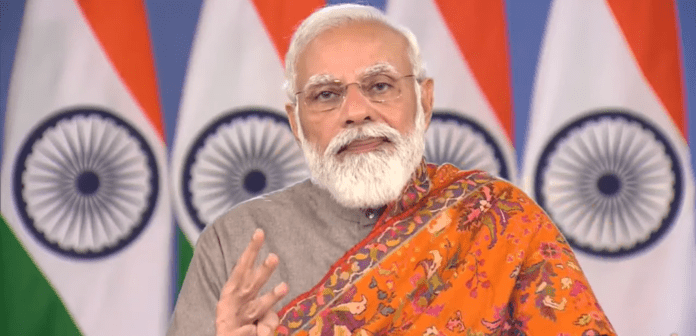Indian Prime Minister Narendra Modi’s visits to Brunei and Singapore aim to strengthen bilateral relations and boost cooperation in various sectors, marking significant diplomatic milestones
Indian Prime Minister Narendra Modi commenced a series of pivotal diplomatic visits on September 3, 2024, travelling first to Brunei and then to Singapore. This historic journey, which begins with Brunei, represents the first official visit by an Indian Prime Minister to the Southeast Asian nation, commemorating 40 years of diplomatic relations between the two countries.
In Brunei, Modi was warmly welcomed by Sultan Haji Hassanal Bolkiah. The two leaders engaged in extensive discussions focused on deepening bilateral cooperation across numerous domains. Key areas of collaboration highlighted included defence, trade, investment, energy, technology, space exploration, healthcare, and cultural exchange. This visit underscored Brunei’s importance to India’s ‘Act East Policy’ and its role in regional stability and growth. The Indian diaspora in Brunei, approximately 14,000 strong and comprising doctors and teachers, has played a crucial role in fostering goodwill and contributing to the nation’s development, further strengthening ties.
Embed from Getty ImagesFollowing his visit to Brunei, Modi travelled to Singapore on September 4. This visit, his first to Singapore in nearly six years, involved high-level meetings with key figures including President Tharman Shanmugaratnam, Prime Minister Lawrence Wong, Senior Minister Lee Hsien Loong, and Emeritus Senior Minister Goh Chok Tong. Modi also engaged with business leaders from Singapore to discuss expanding economic and strategic partnerships.
The visit to Singapore aimed to build on the already robust relationship between the two nations. Notable achievements in their partnership include steady growth in trade and investment, as well as strong defence cooperation. A significant highlight of the visit was the anticipated signing of a Memorandum of Understanding (MoU) on semiconductor ecosystem cooperation, reflecting ongoing advancements in bilateral ties under the India-Singapore ministerial roundtable framework.
Modi’s visits serve as a strategic effort to enhance India’s influence in Southeast Asia, reflecting a broader vision of regional cooperation and economic integration. Both stops on the tour aim to solidify and expand upon existing relationships, address shared challenges, and explore new opportunities for collaboration.
Analysis:
Political: Prime Minister Narendra Modi’s visits to Brunei and Singapore represent a significant strategic maneuver in India’s foreign policy. The trip underscores India’s commitment to strengthening ties with Southeast Asian nations, aligning with its broader ‘Act East Policy.’ This policy focuses on enhancing India’s influence in the Indo-Pacific region, balancing against China’s growing presence. By deepening diplomatic and economic relationships with Brunei and Singapore, India aims to fortify its regional alliances and bolster its geopolitical standing.
In Brunei, the visit highlights the importance of engaging with smaller nations to build a network of support within ASEAN. This aligns with India’s strategy of leveraging diplomatic relationships to enhance its role in regional security and economic frameworks. The visit to Singapore, a major economic hub, signals India’s intent to deepen trade and investment ties, which could also influence Singapore’s strategic decisions within the broader ASEAN context.
Social: The visits reflect a broader trend of increasing global interconnectedness and the importance of nurturing bilateral relationships. The engagement with the Indian diaspora in Brunei demonstrates the role of expatriate communities in strengthening international ties. Modi’s interactions with local leaders and business figures in both countries highlight the societal impact of diplomatic efforts, showcasing how political actions resonate with and benefit diverse communities.
Racial: The emphasis on the Indian diaspora’s contributions in Brunei sheds light on the racial and ethnic diversity within the Indian community abroad. The recognition of Indian professionals’ roles in Brunei highlights the positive impact of multicultural engagement and the valuable contributions of different racial groups to the host nations’ development.
Gender: While the visits themselves may not explicitly address gender issues, the presence and recognition of women among the Indian diaspora professionals in Brunei could suggest an implicit acknowledgment of gender contributions. Future discussions or agreements resulting from these visits could potentially include aspects of gender equality, given the increasing global focus on inclusive development.
Economic: The economic dimension of Modi’s visits is significant. The agenda includes discussions on trade, investment, and technology, reflecting India’s strategic economic interests in Southeast Asia. The anticipated MoU on semiconductor cooperation with Singapore highlights India’s aim to enhance its position in high-tech industries. These economic engagements are likely to foster greater investment flows, create new business opportunities, and strengthen economic ties between India and both Brunei and Singapore.
